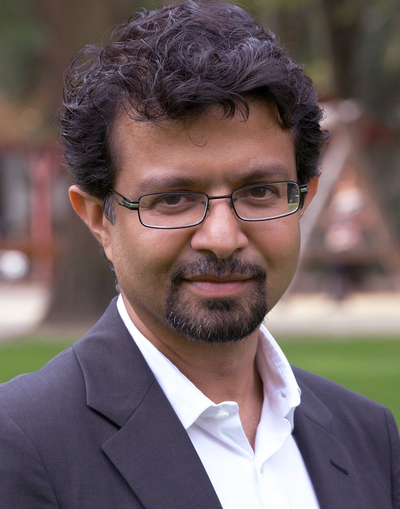A key region of the brain may lie behind the social problems found in autism.
That’s the finding of researchers based at healthcare firm Roche in Basel, Switzerland.

Dr Anirvan Ghosh: believes that reducing activity in the brain circuits between the habenular and prefrontal cortex may improve social skills in those with autism
They found that by increasing activity in a brain region known as the habenula it led to social problems in rodents.
Social problems prevented
Decreasing activity in the habenula, on the other hand, prevented social problems. The habenula is found in the middle of the brain.
The scientists are hoping the findings may help in developing drugs that target the habenula. They could thereby improve sociability in autism.
Dr Anirvan Ghosh is the senior author of the research. He is the former head of neuroscience research at Roche and is now head of research at biotechnology firm Biogen.
He said reducing the activity of the habenula might “uncover those socially directed behaviours” that autism can affect.
Previous studies have identified the brain’s prefrontal cortex as playing a role in impaired social skills. This region of the brain is just above the eyes.
Hyperactivity in the brain
When tested on electroencephalogram scans, around 50 per cent to 70 per cent of children with autism show abnormalities that indicate hyperactivity in the brain. Around 30 per cent develop seizures.
And postmortem samples from people with autism show mutations in genes that control brain activity.
The scientists used a variety of techniques to reveal links between the habenula and the prefrontal cortex and to manage activity levels of neurons in these regions.
The brain circuit that the scientists identified includes areas involved in social reward.
The paper, titled Identification of a Corticohabenular Circuit Regulating Socially Directed Behavior, appeared in Biological Psychiatry.
Related:
- Social skills raised by imaginative play
- Epilepsy may be treated with supplement
- Mum’s health affects child’s autism
Published: 28 January 2018















